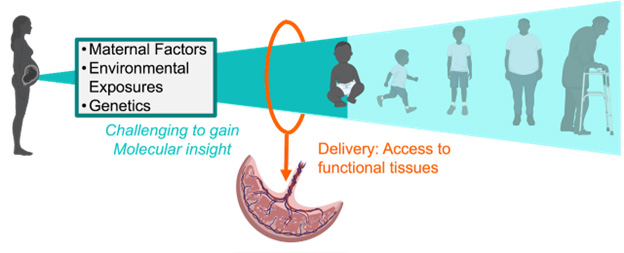Paquette Lab

Pregnancy is a transient but highly important time that shapes health throughout the lifespan. This concept is known as the Developmental Origins of Health and Disease (DOHAD) paradigm. The prenatal environment is influenced by a complex interplay of genetic, environmental and maternal factors. The placenta is a crucial mediator of the in-utero environment, and perturbations to placental function may influence fetal growth and development. Our long-term goal is to gain insight into the underlying molecular mechanisms linking the in-utero environment and birth outcomes by applying innovative network biology approaches and multi-omic data analyses within the placenta.
Our lab is currently using transcriptomics data generated in the placenta to investigate how prenatal exposures (such as phthalates and polycyclic aromatic hydrocarbons), as well as maternal factors (such as maternal stress, corticotrophin releasing hormone, and maternal nutrients) influence the placenta. We use this data to understand how exposures and maternal factors influence the etiology of spontaneous preterm birth. Spontaneous preterm birth is the leading cause of preterm birth, is not well studied and is associated with substantial infant morbidity and mortality, as well as childhood health outcomes. Our research will contribute to understanding modifiable risk factors and underlying mechanisms related to spontaneous preterm birth.